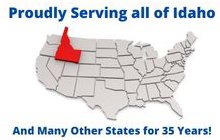Mortgages can be intimidating, which is why we’re providing this quick guide to the basics. Be sure to read Part 1 before diving into Part 2 here.
- How do you apply for a home loan, and what do you need? First, you need to find a quality lender to help you get the best loan for your situation. You’ll need to provide your credit history, debt-to-income (DTI) ratio, income and employment, and possibly a down payment. It’s generally recommended to keep your DTI ratio under 36%. For conventional loans, you’ll likely need a 20% downpayment in order to avoid paying private mortgage insurance (PMI), which is created to protect a lender in case a borrow cannot keep up on mortgage payments. Credit scores often determine whether you will qualify for a loan, but you may qualify even with a lower score. Contact us for help.
- What are the types of mortgages? Mortgage types include Conventional loans, Federal House Administration (FHA) loans, Veterans Affairs (VA) loans, U.S. Department of Agriculture (USDA) loans, and Jumbo loans. Conventional loans will usually require that 20% down or you’ll need to pay for PMI. FHA loans typically require a minimum credit score of 580 and don’t require a large downpayment. VA loans are available to veterans and active military members. You typically don’t need a downpayment or PMI. USDA loans are helpful for those buying in rural areas in designated zones. Jumbo mortgages are conventional loans that exceed borrowing limits, and you’ll generally need a large downpayment. Choosing the right loan takes some careful consideration, but in some cases, you may only have one or two options. The best thing to do is make sure you’re using an experienced, trusted lender to guide you through this process.
- What is refinancing, and when should you do it? When you close on a mortgage, you aren’t necessarily locked into the rate for life. You can refinance, which means switching to another loan. Refinancing is a good option if you’re in a loan with a high interest rate or if you want to shorten or extend the mortgage term. For example, maybe you got into a 15-year loan and realized you can’t keep up on those higher payments. You can refinance to a 30-year loan instead. Refinancing, of course, comes with fees, so you’ll want to discuss with your lender about the terms and options to make sure your savings and benefits offset those fees.
Because mortgages can be complex and there are many factors involved, it’s important to have a lender who is knowledge and experienced. But equally important is to find a lender who is open to communicate with you about all your questions and concerns. It does you no favors if you have the most experienced lender in Idaho yet they’re difficult to talk to and you go through the entire process confused and stressed. InterWest Mortgage is an experienced lending company that takes the loan process from start to finish and also boasts excellent customer service. Take the fear and the guessing out of home loans and contact us for expert care.





